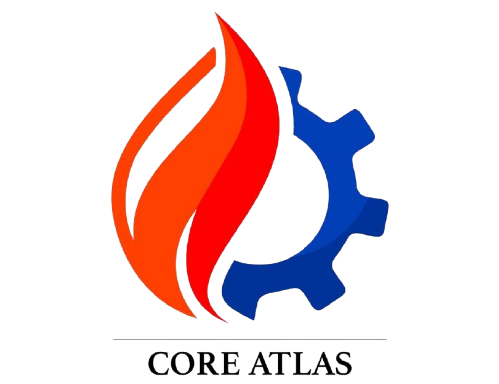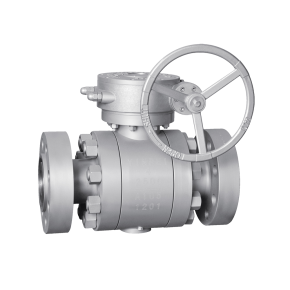Forged steel fixed ball valve 1
A robust forged steel fixed ball valve designed for high-pressure industrial systems, offering secure shut-off, minimal maintenance, and excellent flow control.
Forged steel fixed ball valve 1
The Forged Steel Fixed Ball Valve 1 is engineered to meet the highest demands of industrial applications, supplying reliable isolation and flow control in environments where strength and durability are essential. Built from high-quality forged carbon steel, stainless steel, or alloy steel, this valve supports pressure classes ranging from 150 to 2500 (Class 150–2500) and sizes from ½” to 4″ (DN 15–100). Unlike floating ball designs, this valve features a fixed ball that remains stationary within the valve body. This fixed ball configuration ensures low torque operation, making it an excellent choice for high-pressure forged fixed ball valve applications even under severe service conditions.
Certified to API 6D and ASME B16.34, the valve combines a full-bore or reduced-bore flow path with a precision-machined ball for smooth, reliable performance. The fixed ball setup creates consistent downstream sealing by using dual seats that clamp the ball within position—ideal for high-viscosity or slurry media. Soft-seat PTFE or PEEK materials provide tight shut-off, while optional metal-seat configurations deliver fire-safe, high-temperature performance—critical in metal-seated forged ball valve deployments.
Safety and reliability are embedded in the valve’s design, including an anti-static device, blow-out-proof stem, and live-loaded packing to maintain seal integrity over time. A three-piece body configuration allows for inline access to internal components without removing the valve from the pipeline, enabling fast maintenance and reducing downtime. End connections such as butt-weld, socket-weld, and flange (ANSI/ASME B16.5) suit new installations and retrofits alike. The forged steel construction resists vibration, pipeline stress, and corrosion better than its cast counterparts, making it suitable for demanding applications in oil & gas, petrochemical, power generation, and industrial process systems.
The valve operates with a smooth quarter-turn and features an ISO 5211 mounting pad, enabling direct actuator installation—whether worm gear, pneumatic, or electric. Its low-torque performance simplifies integration with high-pressure forged fixed ball valve systems, cutting actuator size and cost. It undergoes strength and seat-tightness testing per API 598 and EN 12266‑1, ensuring dependable operation under pressure.
Engineers often prefer this fixed ball design in high-viscosity, slurry, or high-pressure scenarios where floating balls may not provide optimal control. Operating over a wide temperature range—from cryogenic to 450 °C (with metal seats)—it adapts to steam, gas, chemical, and fluid systems. This is particularly useful in utility steam lines, hydrocarbon feed systems, compressed air networks, and slug-prone pipelines.
Routine servicing is simplified through the three-piece body and bolted bonnet, supporting inline disassembly for seat or seal replacement without disrupting the pipeline. Fire-safe and metal-seat options add reliability for emergency isolation systems, flare lines, and safety-critical applications.
The Forged Steel Fixed Ball Valve 1 combines exceptional structural integrity, precise sealing, and ease of operation. Its fixed seat design offers lower torque actuation and long maintenance intervals, making it a practical and reliable solution for modern industrial flow control systems.

